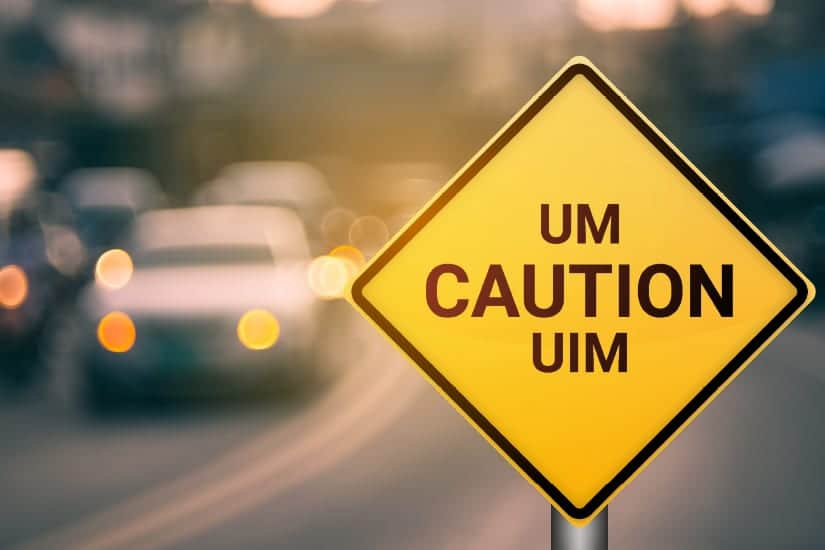We see far too many cases where insurance coverage is woefully inadequate.
by Peter C. Burnett, principal, Burnett & Williams P.C., Virginia Personal Injury Law

It’s getting more dangerous to drive.
In recent weeks, we have seen numerous stories about the rise of accidents from cell phone distraction, the increase in annual pedestrian deaths nationally, and, here in Virginia, one failed statutory attempt to rein in distracted driving accidents by limiting cell phone use.
Perhaps because it is not particularly newsworthy, we never see stories about how we should be protecting our economic well-being in the event of a serious accident. However, within this practice, our perspective on the urgency is entirely different. In part because Burnett & Williams focuses on cases involving serious and even grievous injuries, we see far too many good people in bad situations where their car insurance coverage is woefully inadequate for the damages incurred. Simply put, in such circumstances the claimant gets short changed by not being fully compensated for the injuries sustained in the accident. We describe these folks as double victims – first hurt in the accident and then hurt economically.
Fortunately, there are simple, inexpensive ways this can be avoided.

UM/UIM coverage matters
When buying auto insurance, most of us are aware of the need for adequate coverage for accidents that we cause. While that is certainly prudent and appropriate to the decision, additionally planning for the possibility of being injured by a driver with no insurance or inadequate insurance is equally important, because it’s all too common. 10% of all drivers in Virginia have no insurance at all. Think how many drivers you see on your way to work or an errand. As long as 1 in 10 vehicles are operating with no means of paying for the damages they might cause, it is essential to have uninsured/underinsured (UM/UIM) motorist coverage. Insurance companies are required by law to provide it in the same amount as your liability coverage. The key is getting it in an adequate amount.
Most people are surprised to learn that insurance companies do not want to sell you high levels of coverage. Such a notion seems counter-intuitive until you consider that, of the 70,000 auto claims in Virginia each year, more than 90% settle for under $25,000. The average claim in the United States is about $17,000, and in today’s world, virtually every major insurance company uses a computer program to evaluate claims. It is efficient and profitable, but not conducive to processing large claims that involve profound injuries and/or recovery. Compared with the simple ease of processing the majority of claims, it becomes clear why insurers want to limit their exposure to policies with high limits. To process a high limit case, the insurance company needs to use more experienced, higher salaried adjusters. They often need to engage medical experts at considerable expense, and the larger cases often require the involvement of their lawyers.
None of this changes the fact that, if you drive, you risk facing medical, disability, and loss of income expenses that exceed typical insurance limits.
So what should you do? Here are a few simple inexpensive suggestions:
1. Change you existing coverage from split limits to single limit coverage. The per person, per accident form of coverage, often expressed as 25/50, 50/100, 100/300, 250/500, etc., benefits the insurance company, but not you. By making the ‘per person’ AND the ‘per accident’ amount the same, called ‘single limit coverage’, you double (triple with 100/300) the amount of coverage available to you for the payment of claims that are your fault and cases where you are injured by someone with no coverage or inadequate coverage. The typical cost is $30 to $40 per year.
2. Consider increasing your coverage as much as you can afford. Most of us can think of lots of fun ways to spend the money we otherwise use to protect our families with term life insurance for example, but we see it as important for their protection. As with life insurance, we all hope disaster does not strike us in the form of an unexpected serious auto accident. Unfortunately, we all average 5 accidents, most very minor, over the course of a lifetime. Nevertheless, if a major accident is to befall us, we can take steps beforehand to ensure that hardship is not aggravated by not being fully compensated. Higher limits can be a godsend when bad luck strikes.
3. If you can afford it, buy an umbrella policy, BUT. Be sure it covers UM/UIM. Many insurance agents (remember the above comment about not wanting to sell high limits) recommend not-increasing your liability and UM/UIM limits and adding an umbrella to save money. This is usually poor advice. Such policies are cheap, because more than 95% of them do not provide UM/UIM coverage. Some companies will allow an endorsement to add the UM/UIM coverage. Be sure to check carefully.
As always, we are happy to discuss your auto insurance circumstances and needs with you at any time for no charge. Feel free to give us a call, (703) 777-1650, or contact us here.